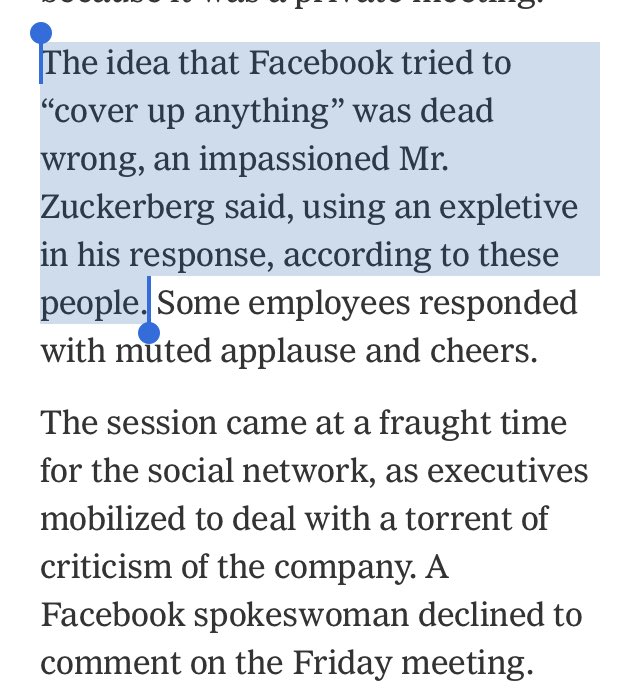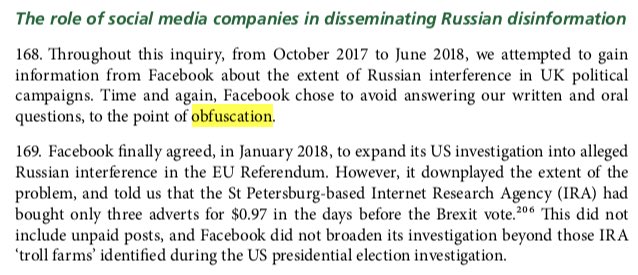Here's how it works:
– CCTV captures people’s faces as they enter shops. These images are converted to a faceprint. This is basically a string of data, which is compared against a watchlist. Matches are flagged




A company as powerful as @facebook should be subject to proper scrutiny. Mike Schroepfer, its CTO, told us that the buck stops with Mark Zuckerberg on the Cambridge Analytica scandal, which is why he should come and answer our questions @DamianCollins @IanCLucas pic.twitter.com/0H4VMhtIFu
— Digital, Culture, Media and Sport Committee (@CommonsCMS) May 23, 2018

